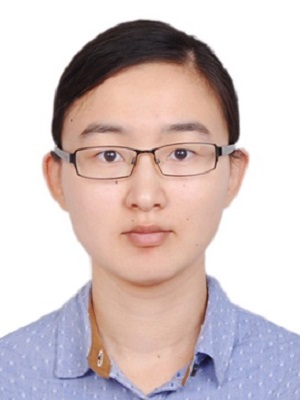Henglu Xu
Interview by Carey Sargent, EPFL, NCCR MARVEL
What exactly is your master's thesis on? What drew you to the topic?
I'm studying organic crystals, more specifically, porous organic cages. We're using our own topological-based method to analyze its pore diversity and explore its potential application for energy storage. Looking at pore diversity is fun. The biggest difference between this and other porous materials is that it has some intrinsic and extrinsic porosity and when they form different packing of structures, it leads to different extrinsic porosity and so the question of how to analyze this and how to classify this porosity are interesting points of this project. This difference in porosity also has an impact on its performance in our application.

Will you continue on this topic during your PhD?
Well… we also have an experimental group and I'm still considering that. Now I'm using mainly some pore analysis tools to analyze the structure of materials and explore their potential applications. But later I don't know whether I'll switch to exploring their chemical properties. It really depends — I’m still doing some literature review and looking for the projects that interest me.
In our group, the professor doesn't just give you a specific project to do, he encourages you to have your own interests and is more there to give you useful advice on how to figure out your project. You can have a lot of freedom. You're not just doing some project that your supervisor told you to do.
We can see that the percentage of women professors or students even here is still under average. I think projects like MARVEL INSPIRE Potentials fellowships could contribute to an increase.
Why do you think women are underrepresented in some fields of science?
Actually, I don't know… I think nowadays women have better performance than men in university and high school, but that this advantage doesn't continue as they go into higher education like for a PhD or postdoc. It’s very weird. We can see that the percentage of women professors or students even here is still under average. I think projects like MARVEL INSPIRE Potentials fellowships could contribute to an increase. I also think sometimes that the difference is also due to the intrinsic interests of men and women. But I do think it depends on the specific person and society may have an influence. It may even be an influence that you don't notice, they just brainwash you and tell you to do one thing or another.
Do you have any advice for young girls interested in science?
I would say that if they are smart and hard-working they can just try anything, they don't need to be restricted to a specific area. They can just try — like I did in university, taking some courses in math, physics, chemistry and biology and then later choosing chemistry, they can just take anything they want.
